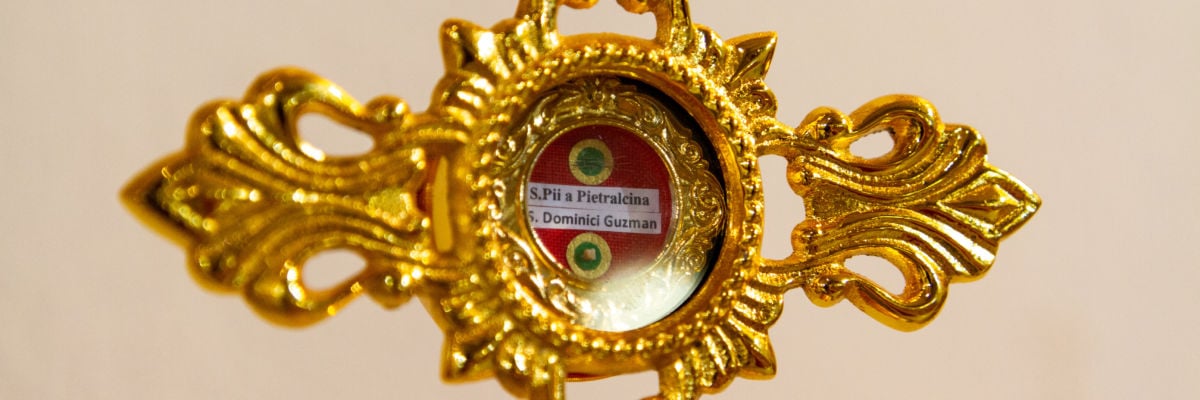
What’s the deal with Catholics and relics? For centuries, Catholics have gathered the remains of saints to be venerated, but is this wrong? Is there Biblical evidence to support the Catholic teaching on relics? Joe Heschemeyer explains in this episode of Ready Reasons.
Transcript:
Why Do Catholics Keep Relics?
If you go into a Catholic church, there’s a good chance that somebody’s bones or a drop of their blood is in the altar… and you might even see (particularly in older European churches) the bones of the Saints on display, with people praying in front of them. So what’s the deal with that? Why do we venerate the bodies of the Saints? Isn’t that superstitious?
The first thing to realize is that Scripture gives a great importance to the body. There’s sometimes an idea that I’m just a ghost living in a meat shell, and that death is me being freed from my body. But that’s not the biblical, or Jewish, or Christian understanding of the body at all. Instead, the idea is that I am both a soul and body. That’s why, for instance, when the Israelites came out of Egypt, Moses took the bones of Joseph with him (Exod. 13:19).
Exod. 13:19 And Moses took the bones of Joseph with him; for Joseph had solemnly sworn the people of Israel, saying, “God will visit you; then you must carry my bones with you from here.”
That’s also why burying the dead is a corporal work of mercy:
CCC 2300 The bodies of the dead must be treated with respect and charity, in faith and hope of the Resurrection. The burial of the dead is a corporal work of mercy; it honors the children of God, who are temples of the Holy Spirit.
But you might be thinking, “that’s well and good and all, but what’s the deal with taking their bones and their blood”? After all, if the bodies of the dead must be treated with respect, how do we justify chopping them up like that?
There are three biblical data points to know here. First is
Acts 5:14-15, And more than ever believers were added to the Lord, multitudes both of men and women, so that they even carried out the sick into the streets, and laid them on beds and pallets, that as Peter came by at least his shadow might fall on some of them.
This shows us that healing flows, as it were, from the body of Peter. The people are going to Peter, laying down in front of him, and hoping that they’ll be healed just by his shadow passing by. This is so important because if you or I did that today with the pope or some great Saint, you can be assured that our Protestant brothers and sisters would decry it as superstitious. But Acts depicts this as what early Christian faithfulness looks like.
Second is Acts 19:11-12,
God did extraordinary miracles by the hands of Paul, so that handkerchiefs or aprons were carried away from his body to the sick, and diseases left them and the evil spirits came out of them.
This drives the point home even more directly. Things that have touched St. Paul (so we’re getting even more remote than his shadow) are being brought to the sick. And St. Luke, who wrote Acts, is clear that this is how God “did extraordinary miracles by the hands of Paul.” That is, God isn’t threatened by His Saints. God works through His Saints.
The final verse to know is
2 Kings 13:21 And as a man was being buried, lo, a marauding band was seen and the man was cast into the grave of Eli′sha; and as soon as the man touched the bones of Eli′sha, he revived, and stood on his feet.
Here we see very explicitly healing through the bones of a Saint… in this case, an Old Testament Saint. Taken together, those three passages paint a clear picture. Why do we take the bones to as many churches and as many places as we can?
We believe that God likes to work miracles through His Saints, including those (like Elisha) who have already fallen asleep in death. And so we share in the same faith as the early Christians in putting ourselves in places where we can encounter the shadow of Peter or the handkerchiefs of Paul or the bones of a Saint.
For Catholic Answers, I’m Joe Heschmeyer.


